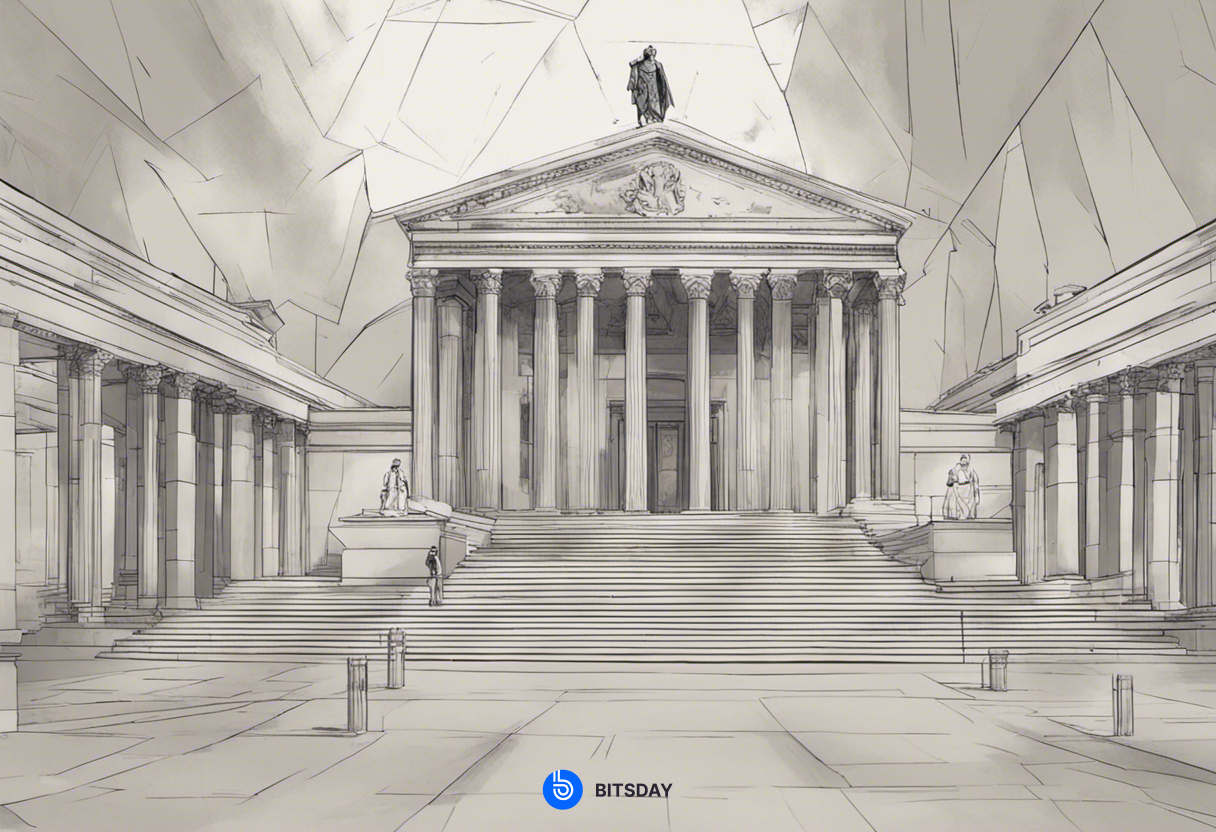Ethereum Governance Council: Balancing Code and Justice

A proposition has emerged from Alex Gluchowski, the co-founder of Matter Labs, suggesting the implementation of a novel approach involving a "hierarchical system of on-chain courts" to resolve on-chain disputes. This idea challenges the prevailing doctrine in blockchain circles that "code is law," which upholds the notion that a network's underlying code should be considered sacrosanct and hold ultimate authority in settling disputes, even in critical situations or when facing existential threats.
In a significant departure from this concept, a prominent figure in the Ethereum blockchain ecosystem is openly endorsing the possibility that, in extreme scenarios, human judgment, rather than rigid coding, might offer superior solutions for delivering justice. Alex Gluchowski, the CEO of Matter Labs, a developer of a prominent Layer 2 network on the Ethereum platform, has introduced the concept of an "Ethereum Supreme Court." This hypothetical entity would be tasked with arbitrating disputes that escalate to the point of jeopardizing the main Ethereum blockchain's integrity.
This proposed system, as described by Gluchowski, resembles the real-world judiciary and would permit applications built on the Ethereum platform to request a chain "fork" in the event of a security breach or any other severe security-related crisis. In response to his September 2 post, Gluchowski succinctly stated, "Code is law, bug = death."
Smart contract implementation risks remain the biggest unsolved problem of Defi. L2s are equally affected.
— Alex G. ∎ (@gluk64) September 2, 2023
Let me pitch an idea: L1 Fork as the Court of Final Appeal.
First, why existing solutions don't work:
1) Time-locked upgrades are great for scheduled changes, but… pic.twitter.com/EcaogkZBH9
Currently, when Ethereum-based applications fall victim to hacks, resulting in the loss of funds, the most common recourse is to initiate a blockchain fork. This involves a majority of the blockchain's users and operators migrating to a new version of the blockchain, effectively rolling back its transaction history.
One of the most notable instances of such a fork occurred in 2016 following the DAO hack, where hackers absconded with a substantial amount of Ethereum (ETH). Ethereum's major stakeholders reached a "social consensus" to establish a new chain version, erasing the hack from its history. This new Ethereum chain became the "canonical chain," while the original chain continued to exist as "ETH Classic," though with significantly fewer users.
Initiating a chain fork is an exceedingly rare occurrence and entails significant challenges. Convincing a majority of the blockchain's operators to support a fork and update their software involves navigating both political and practical obstacles. Additionally, repeated forks can erode trust and value in a blockchain, as its perceived permanence is one of its main value propositions.
Despite numerous thefts of billions of dollars from Ethereum users over the past few years, forks have not been employed as remedies since the DAO hack due to these complexities. Gluchowski's proposal seeks to formalize the utilization of Ethereum's "social consensus layer" to safeguard platforms such as DeFi applications and layer-2 networks, known as "rollups," which can hold substantial cryptocurrency assets but lack the capability to fork Ethereum in the event of catastrophic failures.
Under Gluchowski's envisioned system, if an Ethereum-based platform encounters exploitation or security breaches, the affected community could navigate its case through a smart contract-based judicial system. Each court would have the option to escalate decisions to a higher court, ultimately culminating in the "Ethereum Supreme Court." Determining the verdict of this smart contract would require a technically soft fork of Layer 1 (L1).
Gluchowski emphasizes that this system should come at a high cost, and only truly exceptional cases should reach the Supreme Court. He provides examples such as a bug in Uniswap, a significant Layer 2 issue, or a DeFi protocol posing systemic risks.
While Gluchowski's proposal has generated considerable interest and discussion, it faces skepticism and challenges. Ethereum co-founder Vitalik Buterin has cautioned against overburdening Ethereum's "social consensus layer," and Gluchowski's court system would undoubtedly place additional demands on Ethereum's community to monitor and respond to issues.
“I am openly challenging it,” Gluchowski wrote of Buterin’s May 2023 blog post on the topic.
Nevertheless, Gluchowski's proposal highlights the growing concern among Ethereum app developers regarding security. Layer 2 applications like zkSync, developed by Matter Labs, safeguard substantial user funds, and the potential for complete loss due to bugs or hacks looms large. As these platforms become increasingly substantial and integral, Gluchowski argues that conventional solutions, such as security councils and time-locked upgrades, may prove insufficient for user protection. Ultimately, such a system could serve as a robust deterrent against external political interference and elevate Ethereum's role as a formidable network state.

Trending



Press Releases

Deep Dives







